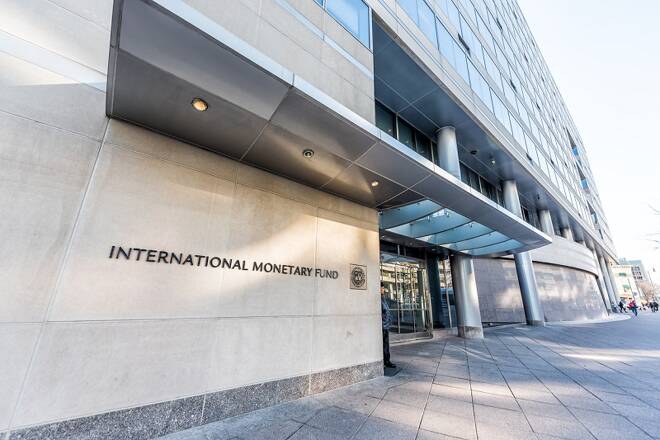Advertisement
Advertisement
Crypto Regulations Should be Consistent Around the World — IMF
Published: Dec 13, 2021, 15:29 GMT+00:00
The International Monetary Fund (IMF) has demanded that countries around the world coordinate their crypto regulations together.
The International Monetary Fund (IMF) has called for more consistent crypto regulations across international borders.
It said this in a blog post titled “Global Crypto Regulation Should be Comprehensive, Consistent, and Coordinated”, authored by three members of its Monetary and Capital Markets Department.
Crypto Regulations Should be Consistent Around the World
The international organization noted that the growth of crypto assets in the past few years has been astronomical and how it’s already interacting with the traditional final year systems, which is regulated.
According to the IMF, the lack of regulations make it difficult for policymakers to monitor the risks associated with this class of assets and thinks that “these financial stability risks could soon become systemic in some countries.”
The authors further warned of the dangers that developing and emerging economies’ could face if they become entangled with crypto. Per the IMF, these economies are at risk of “cryptoization” which is a situation where “these assets replace domestic currency, and circumvent exchange restrictions and capital account management measures.”
How Countries can Regulate crypto
The post doesn’t just call for universal regulations but also suggests how it should be done, claiming such universal regulations will ensure a level playing field and uniform risk. The three elements necessary for regulation are:
- All crypto services providers “should be licensed or authorized,” the criteria for such authorization and licensing must be clearly stated with the responsible authorities stipulated, and the coordination mechanisms among these authorities should be well defined.
- Requirements should only be restricted to the main use cases of crypto assets and stablecoins (USDT and its likes). Different and changing uses only lead to various risk factors that the authorities, including the securities watchdog and central banks, must address.
- Authorities should have clear guidelines and requirements for regulated financial institutions’ exposure to and engagement in Cryptocurrencies.
This is not the first time that the IMF would have something to say about crypto. Back in October, the organization released a report where it claimed that crypto poses a risk to financial stability. It was also against El Salvador’s decision to make crypto a legal tender.
About the Author
Oluwapelumi Adejumoauthor
Oluwapelumi is a firm believer in the transformative power power Bitcoin and Blockchain industry holds. He is interested in sharing knowledge and ideas about how the industry could play a pivotal role in the emerging financial system. When he is not writing, he is looking to meet new people and trying out new things.
Advertisement
